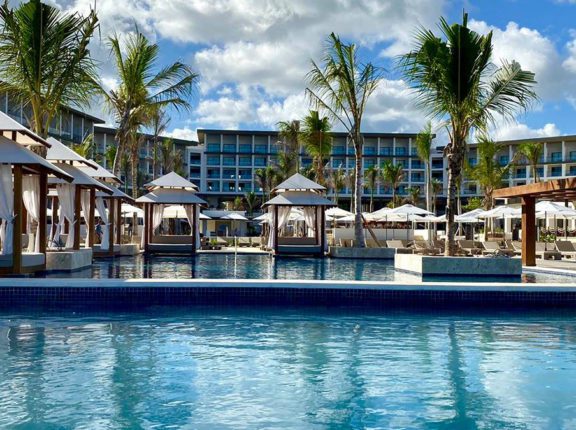Doing Business in the Caribbean: Lessons From Singapore
By Paul Hay
Op-Ed Contributor
In the “Competitiveness of Small Nations: What matters?”, Densil Williams and Beverly Morgan analyze the competitive performance of Singapore, Barbados, Jamaica, Trinidad and Tobago under the “Global Competitiveness Report” over a period spanning 2004/5 to 2010/11.
Singapore consistently outperformed the Caribbean nations.
Smallness is typically seen as a disadvantage to competitiveness, but Singapore shows that this can be overcome. Since 2007/8, the southeast Asian city-state has ranked in the top five most competitive nations in the world.
But with a per capita income rivaling western European nations, one could argue that this is an unfair comparison.
However, Williams, et al explain that all these countries had similar economic structures, history, and institutions during the 1960s: Singapore has simply attained a greater level of development.
In “Doing Business 2013” – the Global Competitiveness Report for the period 2011/12 – Singapore was ranked the most competitive nation of the 185 nations examined. Puerto Rico was the highest ranked Caribbean island at 41. Trinidad and Tobago was highest-ranked independent Caribbean nation studied by Williams et al, at 69, overtaking the usually more competitive Barbados, which was ranked 88; just ahead of Jamaica, at 90.
An article in the Jamaica Observer of 5 April 2013 read: “Gov’t to improve Jamaica’s Ratings for Doing Business – GG.”
That is, the Jamaican government says it plans to improve on laws, procurement procedures, use of information and communication technology, risk management, government services and macroeconomic management.
The Global Competitiveness Report analyzes 10 criteria across four stages of the business cycle, namely: start-up, expansion, operation, and insolvency. In the interest of time, I shall focus on the operation stage, which involves four criteria: dealing with construction permits, getting electricity, paying taxes, and trading across borders. Since my expertise is primarily in the Real Estate and Construction Industries, I will further narrow the scope of this discussion to the criterion “dealing with construction permits.”
For this criterion, rankings of the Caribbean nations are significantly different from the overall ranking, but Singapore still excels, with a rank of 2. There, construction permits undergo eleven procedures; this lasts 26 days, and costs 16.7 percent of the per capita income. Jamaica ranks next highest in the group at 50: requiring eight procedures, 145 days and costing 212 percent of per capita income. Barbados follows closely with 53: requiring ten procedures, 416 days and 83 percent of per capita income; followed by Trinidad and Tobago at 101: requiring 17 procedures, 297 days and 5.3 percent of per capita income.
For this criterion, St. Vincent and the Grenadines ranked fifth and Grenada 10th.
So, these could be case studies for the larger Caribbean islands considered here.
But it is unacceptable for Jamaica to issue a construction permit in the time it takes Singapore to issue five; or, Barbados to issue a construction permit in the time it takes Singapore to issue sixteen. It should now be obvious how Singapore has developed more than its Caribbean counterparts since the 1960s.
In fact, Singapore had less than 2 percent unemployment in the third quarter of 2012. It had a budget surplus of o.7 percent of gross domestic product in 2011. And its construction industry grew by 11.6 percent from 2007 – 2011, by which time it was worth £14.6 billion: this industry is also projected to grow by approximately 5 percent per each year up to 2016.
Technology is used to advantage by Singapore. According to Williams et al, “the state of technological readiness in any country will impact on its ability to increase productivity, for technology helps to drive greater efficiency and thus improves output and performance”; and “technology as an enabler to improved competitiveness in the Caribbean is clearly an area that needs much attention.”
As early as 1995, Singapore’s Ministry of National Development implemented a project called CORENET: which stands for COnstruction and Real Estate NETwork. Its objective was to re-engineer processes in the construction industry to achieve faster turn-around times, as well as increase productivity and quality. CORENET was implemented by the Singapore Building and Construction Authority in collaboration with other public and private organizations. An IT infrastructure was developed to facilitate integration of processes in a building’s lifecycle, namely: design, procurement, construction and maintenance.
The current effort provides information services to speed up business planning and decision-making; electronic building plan submission, checking and approval; as well as IT standards for communication between involved parties.
“We have to acknowledge that Caribbean nations are uncompetitive, be willing to change, and apply bold and innovative solutions.”
The benefits involve provision of one-stop convenience for private and public sectors alike; one-stop submission of plans to multiple agencies from any location at any time; online access to check submission status; and a single billboard for approving authorities to post submission status.
While our Caribbean nations are still submitting paper-based drawings, which, to a large extent, are hand-drawn, Singapore has for almost two decades developed a digital one-step process of dealing with construction permits.
The moral of this story is that development takes foresight, planning, and diligent implementation of our plans.
We have to acknowledge that Caribbean nations are uncompetitive, be willing to change, and apply bold and innovative solutions.
We cannot expect to improve our competitiveness by doing the same thing day in and day out.
Fortunately the global competitiveness report allows us to benchmark our performance against competing nations. Low growth results from a lack of competitiveness.
Competitiveness results from using resources more productively, and “when productivity is high, economic growth is high.”
Paul Hay is the founder and manager of Paul Hay Capital Projects.
Note: the opinions expressed in Caribbean Journal Op-Eds are those of the author and do not necessarily reflect the views of the Caribbean Journal.







